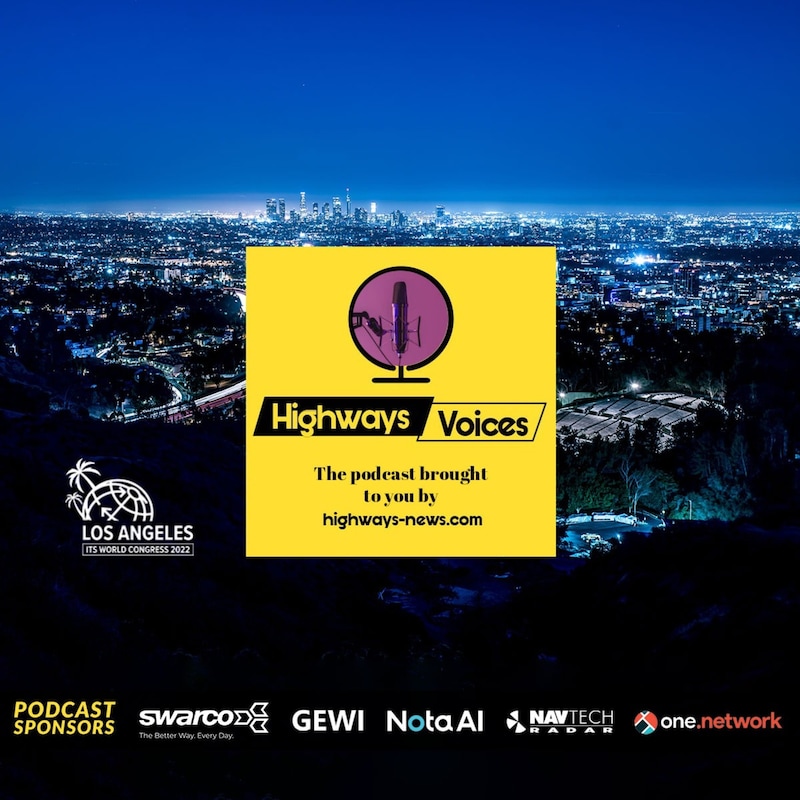Highways News brought you daily podcasts from the 2022 ITS World Congress in Los Angeles, and now here’s one final podcast featuring content we couldn’t fit into the daily programmes.
In today’s show, sponsored by GEWI, SWARCO, Nota AI, one.network and Navtech Radar, you’ll hear an explanation of a revolutionary new way of maximising the value of eCall, why MaaS is still relevant, and how LIDAR can deliver solutions for intersection safety and traffic counting.
Talking eCall, Danny Woolard, one of the founders of VESOS, explains, “I think one of the one of the things that we identified following the work we did for in the was very much that there was a very big education piece missing. Now to be fair on national highways, they've done a lot. They've run campaigns, we've been working with them, helping them build those campaigns to get that message across. But there is still a problem, that the value chain particularly at the automotive side, and particularly the dealership side has no idea how you know how it works, what what its real value is.” Mr Woolard explains the value of eCall in giving emergency services details about a collision, from vehicle type, including whether it is an electric vehicle, to how bad the situation might be.
After this, Andy Taylor of Cubic, who is one of the world’s leading experts on Mobility as a Service, explains why the concept remains relevant. “It's still happening. If you look at the headlines, there are more and more companies who are folding, and I'm getting phone calls all the time from different organisations saying, ‘Would you be interested in acquisition?’ Now that's come about because of COVID. There's the reduction in ridership, but because of COVID, as well, this has actually helped mobility as a service in the long run - cities have had their services decimated, and it's been absolutely tragic to see the reduction in ridership - but at the same time agencies are now looking at, with the limited funds that they have, how can they build back a more flexible, resilient network that is available for all of the citizens within the city?”
You’ll also hear about solutions from Aeye and Ouster, two companies new to Highways News who were exhibiting at the event.
Subscribe to Highways Voices free on Apple Podcasts, Spotify, Amazon Music, Google Podcasts or Pocket Casts and never miss an episode!





